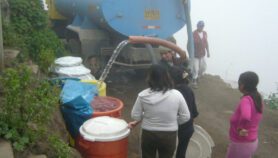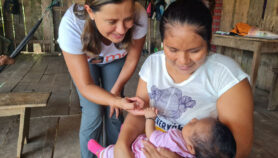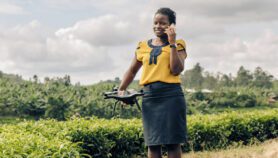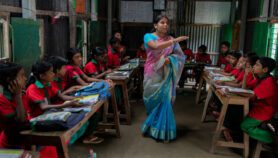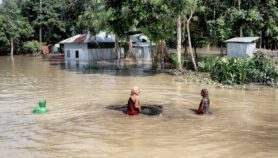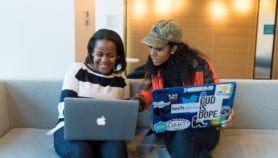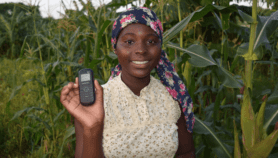By: Usha Raman
Send to a friend
The details you provide on this page will not be used to send unsolicited email, and will not be sold to a 3rd party. See privacy policy.
[HYDERABAD] Electronic versions of school slates could soon extend educational opportunities for rural schoolchildren in India, with a pilot trial set to take place near Hyderabad.
The iSlate, a solar-powered tablet personal computer with a touchscreen, designed specifically for the education sector, will be piloted at the end of this month with 22 children at a school in Mohd Hussainpalli village, in an arid region some 70 miles southwest of Hyderabad. Early prototypes were introduced in the school in August.
The prototype comes preloaded with maths lessons in the local language, Telagu. Running on high efficiency, low consumption, solar-powered microchips, the iSlate is "simple, suitable, sustainable and scalable," according to Rajeshwari Pingali, director of the Hyderabad-based non-governmental organisation Villages in Development and Learning (VIDAL) — one of the project’s collaborators.
Many computer-based interventions in schools have had only limited success. These include laptops donated by corporate social responsibility projects to rural schools in India’s southern states of Andhra Pradesh and Tamil Nadu. Acknowledging the high failure rate, Pingali told SciDev.Net: "What’s critical about this project is the participative nature of the entire process, from design upwards".
VIDAL project associate Niranjana Nagesh, a social science researcher said: "We are working closely with the 22 children to explore how they interact with different aspects of the technology — the interface, the usability, the content".
The iSlate was developed in a partnership between Singapore’s Nanyang Technological Institute and the Centre for Electronics and Microtechnology in Switzerland (CSEM) and is a collaboration between India, Singapore and the United States. Over the next two years, the hardware and teaching content will be refined, and other communities in the district will be targeted.
"The real challenges will come up after the technology is perfected," said Pingali. "Maths is a relatively simple content area to deal with but developing a good interface in Indian languages for other subject areas will be more difficult."
However, some see such technology-based interventions as taking away attention and resources from basic problems such as teacher training and school infrastructure.
Technology can play an important role in teacher-led instruction in middle school and above, said Ramgopal Konerpalli, an engineer who now teaches in a small alternative school in Hyderabad. But he cautioned that introducing technology too early can actually impede learning and the acquisition of important skills.
"Early learning is so much more about social skills and wide-ranging exploration. And anything that takes time away from the rich, interactive engagement a teacher brings needs to be carefully considered."



